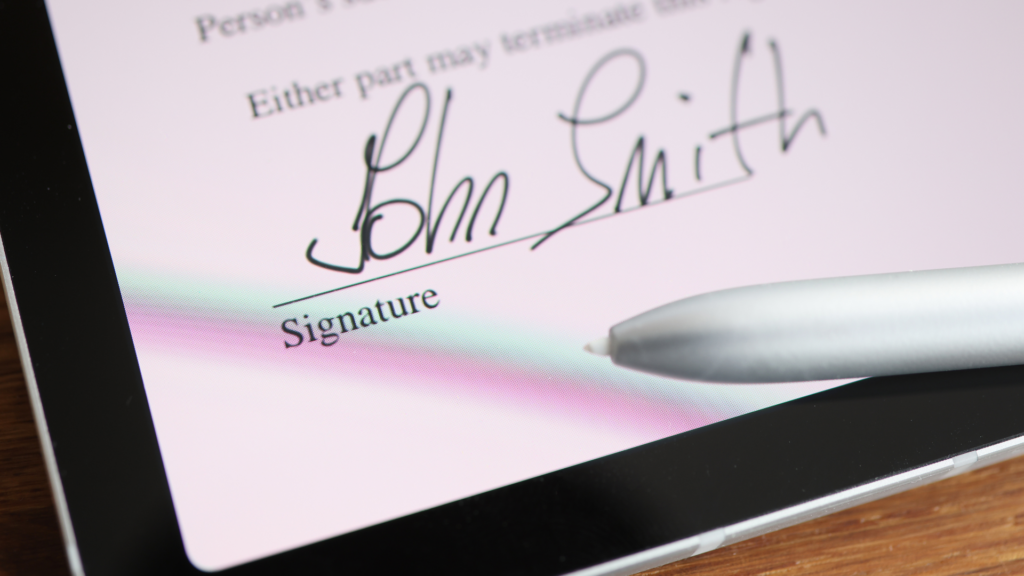How Are Online Documents Notarized?
With the rise of digitalization and remote transactions, the traditional process of notarizing documents has evolved to accommodate the needs of our increasingly interconnected world.
Online notarization has emerged as a convenient and efficient alternative to the traditional in-person notarization process. This innovative approach allows individuals to have their documents notarized remotely, eliminating the need for physical presence and streamlining the authentication process.
In this article, we will explore the fascinating world of online document notarization, delving into the methods, technologies, and legal frameworks that enable the secure and legally valid notarization of documents in a digital environment. From electronic signatures and audio-visual recordings to robust identity verification protocols, we will unravel the intricacies of this modernized approach to notarization and highlight its benefits in our rapidly changing digital landscape.
What is Remote Online Notarization?
Remote online notarization (RON) is a process that allows individuals to have their documents notarized remotely using audio-visual technology and secure online platforms. With RON, signers and notaries can connect virtually, regardless of their physical locations, enabling the notarization of documents without the need for in-person meetings.
During a remote online notarization, the signer and the notary communicate through video conferencing, typically facilitated by specialized software or platforms that ensure privacy and security. The notary verifies the signer’s identity, witnesses the signing of the document electronically, and applies their electronic signature and notary seal.
The entire process is recorded and stored securely for future reference.
Remote online notarization offers the convenience of obtaining notarial services from anywhere, at any time, while maintaining the integrity, authenticity, and legal validity of the notarized documents. It provides a streamlined and efficient alternative for transactions that require notarization, reducing the need for physical presence and paperwork while embracing the advantages of digital technology.

Is Online Notarization Legal?
The legality of online notarization varies depending on the jurisdiction and the specific laws and regulations governing notarial acts. In recent years, many jurisdictions have recognized the validity and enforceability of online notarization as a legitimate and secure method of notarizing documents.
Several countries and states have enacted laws that explicitly authorize and regulate remote online notarization, outlining the requirements and procedures for conducting notarial acts online. These laws typically require the use of approved technology platforms, robust identity verification processes, secure communication channels, and tamper-evident electronic seals and signatures.
It is important to note that while online notarization is legally recognized in many jurisdictions, it may not be universally accepted or permitted in every location. Therefore, it is crucial to consult the laws and regulations of the specific jurisdiction in which the notarization is intended to ensure compliance with the applicable legal framework. Working with a licensed and authorized online notary who operates within the legal boundaries of their jurisdiction is also essential to ensure the validity and enforceability of the notarized documents.

How Much Do Online Notaries Cost?
The cost of online notary services can vary depending on several factors, including the jurisdiction, the type of document being notarized, and the service provider or platform utilized. While specific pricing can differ, here are some general considerations regarding the cost of online notaries:
1. Flat fee or per signature: Online notary services may charge a flat fee for each notarization or offer pricing based on the number of signatures or documents involved. Flat fees can range from around $25 to $100 or more, depending on the complexity and urgency of the notarization.
2. Subscription or membership plans: Some online notary platforms offer subscription or membership plans that provide access to a certain number of notarizations per month or year. These plans can offer cost savings if you anticipate frequent notarizations.
3. Additional services and features: Some online notary services may offer additional services or features, such as document storage, advanced security measures, or expedited processing. These additional services may come at an extra cost, so you may want to consider if they are necessary for your specific needs.
4. State-specific fees: In certain jurisdictions, there may be additional fees imposed by the state or governing body for remote online notarizations. These fees are often separate from the fees charged by the online notary service and should be taken into account.
You should always research and compare the pricing models of different online notary services to find one that suits your needs and budget. Keep in mind that while cost is a consideration, it is also important to prioritize the reliability, security, and compliance of the online notary service to ensure the legality and integrity of your notarized documents.
How To Get A Remote Online Notarization
Obtaining a remote online notarization involves several steps to ensure a smooth and legally valid process. Here’s a general guide on how to get a remote online notarization:
1. Research the legal requirements: Familiarize yourself with the laws and regulations regarding remote online notarization in your jurisdiction. Understand the specific requirements, technology platforms, and identification protocols that need to be followed to ensure compliance.
2. Find a licensed online notary: Look for a licensed online notary who operates within the legal framework of your jurisdiction. Verify their credentials and ensure they are authorized to perform remote online notarizations.
3. Schedule an appointment: Contact the online notary to schedule an appointment for the remote online notarization. Discuss the necessary documents, identification requirements, and any specific instructions or procedures that need to be followed.
4. Prepare your documents: Gather the documents that require notarization and ensure they are complete and ready for review. Some online notaries may require you to upload the documents in advance, so be prepared to provide them digitally.
5. Set up the technology: Ensure you have access to a reliable internet connection, a device with a camera and microphone, and the necessary software or platform recommended by the online notary. Test the technology beforehand to avoid any technical issues during the appointment.
6. Identity verification: During the remote online notarization, be prepared to provide the required identification documents as per the notary’s instructions. This may include a government-issued ID, passport, or other acceptable forms of identification. Follow the notary’s guidance on how to present and verify your identity through the video conferencing platform.
7. Sign and notarize the documents: Follow the instructions provided by the online notary to electronically sign the documents using the designated platform. The notary will witness your signing and apply their electronic signature and notary seal as required.
8. Obtain the notarized documents: Once the notarization process is complete, the online notary will provide you with the notarized documents, typically in electronic format. These documents will bear the electronic signature and notary seal, indicating their legal validity.
Remember, the specific steps and requirements may vary depending on the jurisdiction and the online notary you work with. It is essential to communicate with the online notary, follow their instructions carefully, and ensure compliance with the legal and technological requirements of remote online notarization in your specific location.

Remote Online Notarization Is Fast And Convenient
Remote online notarization has revolutionized the way notarial acts are conducted, offering convenience, efficiency, and accessibility in our increasingly digital world. As technology continues to advance, more jurisdictions are recognizing and adopting the legal framework for remote online notarization, providing a secure and valid alternative to traditional in-person notarizations.
With the ability to notarize documents remotely through audio-visual technology, individuals can save time and effort by eliminating the need for physical presence. However, you should always comply with jurisdiction-specific requirements to ensure the validity and enforceability of the notarized documents.
By working with licensed and authorized online notaries and following the prescribed procedures, individuals can benefit from the advantages of remote online notarization while upholding legal standards and maintaining the integrity of their transactions.
As technology continues to evolve, the landscape of online notarization will likely expand, providing even more streamlined and secure processes for notarizing documents in the digital realm.
About Unified Judicial
Unified Judicial Services is a professional Process Service Agency based in New York City and licensed by the New York City Department of Consumer Affairs.
The company is led and managed by a long-serving member of the legal community with extensive experience in the field.
With our commitment to excellence and acute professionalism, we do our best to provide our clients with truly dependable, affordable, and timely service. Unified Judicial Services has provided consolidated insight to the legal community for many years. We are reinforced, authorized, and guaranteed!
Please contact us today to learn more about our services and how we can help you.